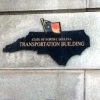One of the more unusual statutes related to eminent domain is N.C. Gen. Stat. §136-69. Under very specific circumstances this statute basically allows a landlocked property owner to file a lawsuit to privately condemn a cartway easement across a neighbor’s land. It is similar to the common-law easement by necessity, but it has its own particular requirements that must be met.
Local Act expands application of Cartway Statute in Some Counties
The North Carolina General Assembly has also passed a separate, local act that expands the cases in which a property owner can sue for a cartway, but it has it’s own requirements and, as a local act, it only applies to particular counties. If you are interested in reading it, just fill out the short form below, and we will automatically email you a link to download it.
N.C. Gen. Stat. § 136-69. Cartways, tramways, etc., laid out; procedure.
(a) If any person, firm, association, or corporation shall be engaged in the cultivation of any land or the cutting and removing of any standing timber, or the working of any quarries, mines, or minerals, or the operating of any industrial or manufacturing plants, or public or private cemetery, or taking action preparatory to the operation of any such enterprises, to which there is leading no public road or other adequate means of transportation, other than a navigable waterway, affording necessary and proper means of ingress thereto and egress therefrom, such person, firm, association, or corporation may institute a special proceeding as set out in the preceding section (G.S. 136-68), and if it shall be made to appear to the court necessary, reasonable and just that such person shall have a private way to a public road or watercourse or railroad over the lands of other persons, the court shall appoint a jury of view of three disinterested freeholders to view the premises and lay off a cartway, tramway, or railway of not less than 18 feet in width, or cableways, chutes, and flumes, and assess the damages the owner or owners of the land crossed may sustain thereby, and make report of their findings in writing to the clerk of the superior court. Exceptions to said report may be filed by any interested party and such exceptions shall be heard and determined by the clerk of the superior court. The clerk of the superior court may affirm or modify said report, or set the same aside and order a new jury of view. All damages assessed by a judgment of the clerk, together with the cost of the proceeding, shall be paid into the clerk’s office before the petitioners shall acquire any rights under said proceeding.
(b) (See editor’s note) Compensation to the landowner for the establishment of a cartway over the property of another shall be as provided in Chapter 40A Article 4 of the North Carolina General Statutes.
(c) Where a tract of land lies partly in one county and partly in an adjoining county, or where a tract of land lies wholly within one county and the public road nearest or from which the most practical roadway to said land would run, lies in an adjoining county and the practical way for a cartway to said land would lead over lands in an adjoining county, then and in that event the proceeding for the laying out and establishing of a cartway may be commenced in either the county in which the land is located or the adjoining county through which said cartway would extend to the public road, and upon the filing of such petition in either county the clerk of the court shall have jurisdiction to proceed for the appointment of a jury from the county in which the petition is filed and proceed for the laying out and establishing of a cartway as if the tract of land to be reached by the cartway and the entire length of the cartway are all located within the bounds of said county in which the petition may be filed. (1798, c. 508, s. 1, P.R.; 1822, c. 1139, s. 1, P.R.; R.C., c. 101, s. 37; 1879, c. 258; Code, s. 2056; 1887, c. 46; 1903, c. 102; Rev., s. 2686; 1909, c. 364, s. 1; 1917, c. 187, s. 1; c. 282, s. 1; C.S., s. 3836; 1921, c. 135; Ex. Sess., 1921, c. 73; 1929, c. 197, s. 1; 1931, c. 448; 1951, c. 1125, s. 1; 1961, c. 71; 1965, c. 414, s. 1; 1981, c. 826, s. 1; 1995, c. 513, ss. 2, 3a)
Special Rule for Cartways in Certain Counties
As mentioned above, a North Carolina Local Act also exists that significantly expands the application of the North Carolina General Statute to apply to land in specific counties. So, like the statute, the local act could be used directly by certain landlocked property owners in a private condemnation action to acquire a cartway easement, but it could also be used to show the value of a property subject to a normal condemnation case filed by
- the NCDOT
- the City of Cary, Charlotte, or a North Carolina municipality or
- another condemnor, like a local school board, a transit or airport authority, or even a public utility, like Progress Energy or PSNC.
In any of those cases, because the local act expands the application of the statute, the local act could be even more helpful to you.
Download Your Copy of the North Carolina Local Act on Cartways
To get a copy of the local act, just fill out the short form below. When you hit submit, we will automatically email you a copy of the act, so you can read it for yourself.
Contact Us Now
You may have questions or you may have a North Carolina eminent domain case now. In either case, to contact us, you should click here.
{ Comments on this entry are closed }






